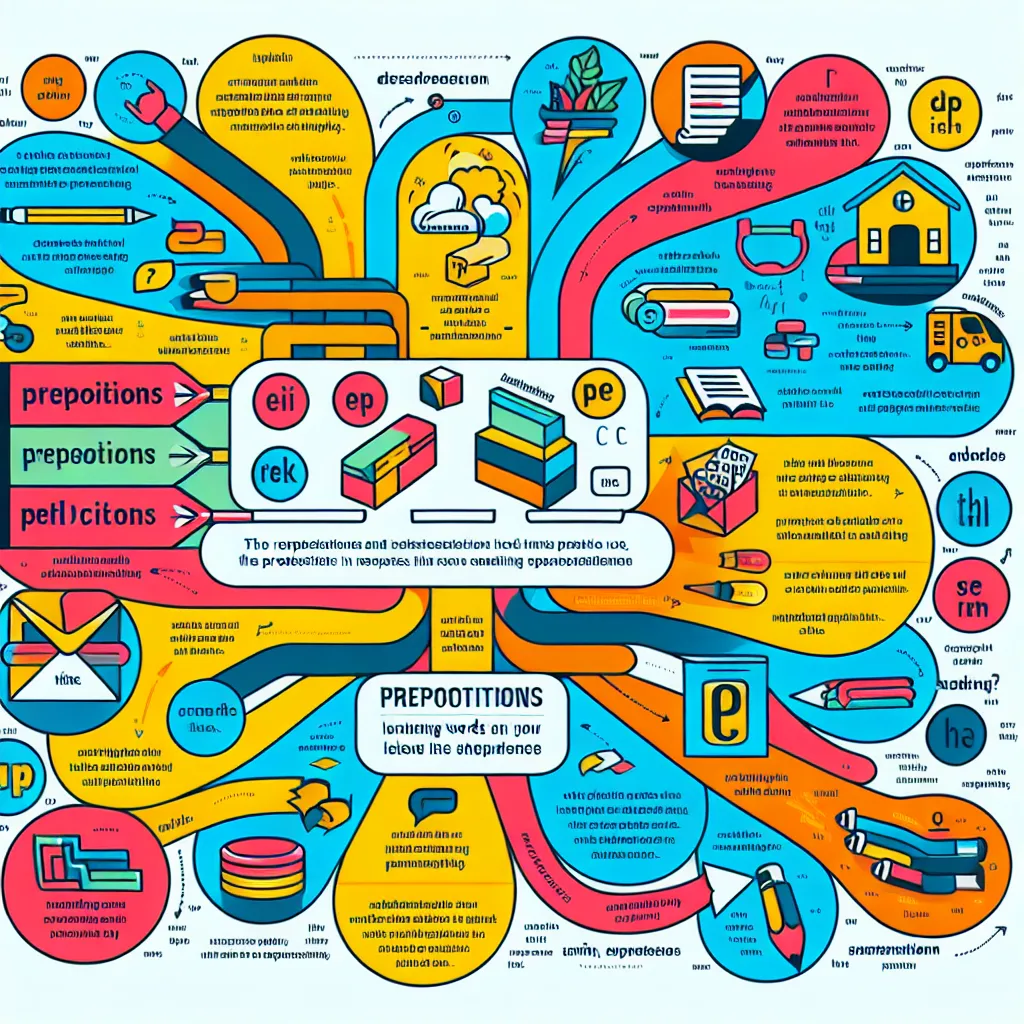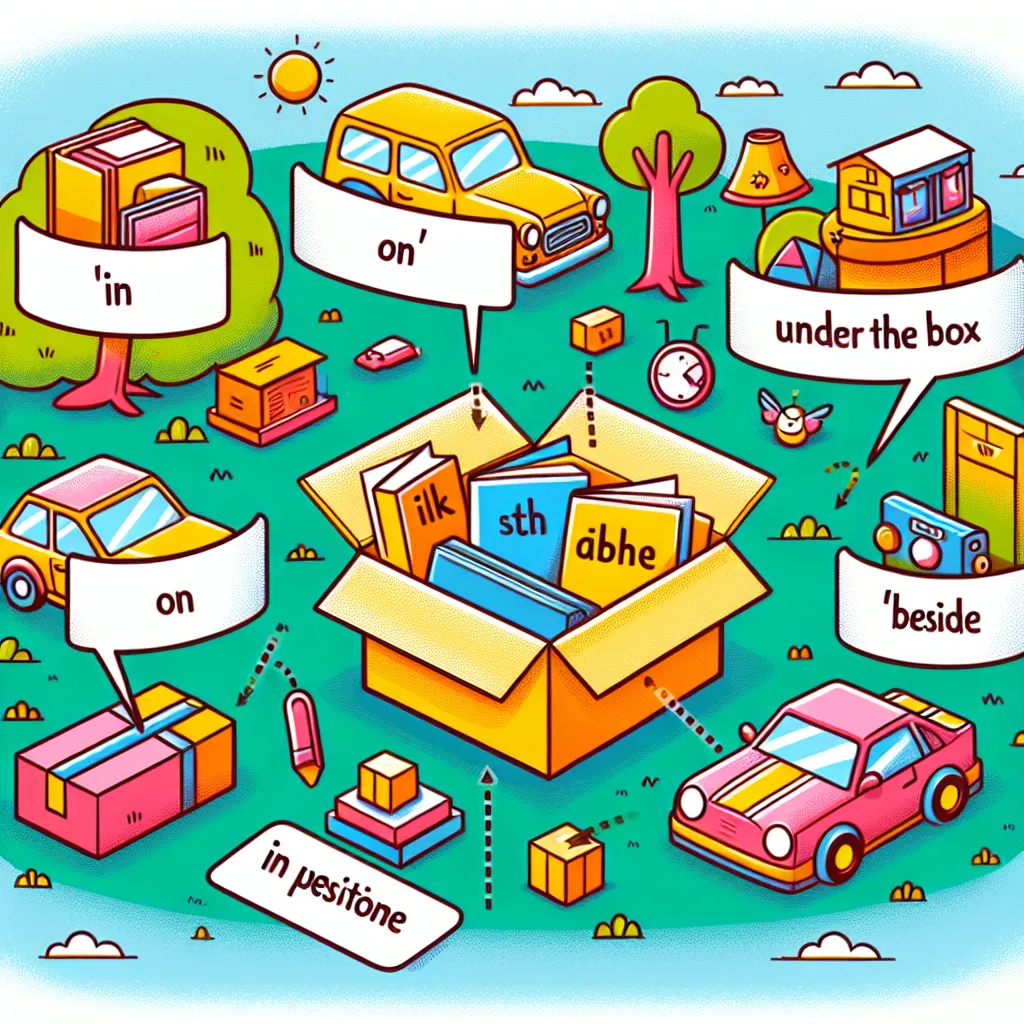Prepositions are essential components of the English language, yet they can be tricky to master. Whether you’re a beginner or an advanced learner, understanding how to use prepositions correctly can significantly improve your English proficiency. In this article, we’ll explore some effective tips to help you navigate the world of prepositions with confidence.
Understanding the Importance of Prepositions
Prepositions are words that show the relationship between other words in a sentence. They indicate location, time, direction, and other abstract relationships. Using prepositions correctly is crucial for clear communication and can often be the difference between sounding like a native speaker and making noticeable errors.
 Importance of Prepositions
Importance of Prepositions
Common Challenges with Prepositions
Many English learners struggle with prepositions because:
- They often don’t have direct translations in other languages.
- Their usage can seem inconsistent or illogical.
- Some prepositions have multiple uses and meanings.
Tips for Mastering Prepositions
1. Learn Prepositions in Context
One of the most effective ways to learn prepositions is through context. Instead of memorizing lists of prepositions, focus on learning them within phrases or sentences.
Example:
- “I’m going to the park” (not “at the park” or “in the park”)
- “The book is on the table” (not “at the table” or “in the table”)
By learning prepositions in context, you’ll naturally understand how they’re used in different situations.
2. Practice with Prepositional Phrases
Prepositional phrases consist of a preposition followed by a noun or pronoun. Practice creating and using these phrases to reinforce your understanding.
Examples:
- In the morning
- Under the bridge
- By the window
Try creating sentences using these phrases to see how they fit into larger structures.
3. Use Visual Aids
Visual representations can be incredibly helpful when learning prepositions, especially those related to location and direction.
 Visual Aids for Prepositions
Visual Aids for Prepositions
4. Pay Attention to Collocations
Some prepositions are commonly used with specific verbs or adjectives. These combinations are called collocations, and learning them can greatly improve your preposition usage.
Examples:
- Interested in (not “interested on”)
- Worried about (not “worried of”)
- Dependent on (not “dependent from”)
5. Read Extensively
Reading a variety of English texts can expose you to prepositions used in different contexts. Pay special attention to how prepositions are used in the material you’re reading.
Tip: Try highlighting prepositions as you read to make them stand out.
6. Practice with Preposition Games and Exercises
There are numerous online resources and apps that offer preposition games and exercises. These can make learning more engaging and help reinforce your understanding.
For more interactive ways to improve your English grammar, check out our tips for mastering English in casual conversations.
7. Learn Preposition Rules, But Be Aware of Exceptions
While there are some general rules for preposition usage, be prepared for exceptions. English is full of idiomatic expressions that may not follow the standard rules.
Example Rule: Use “in” for cities and countries.
- I live in New York.
- She’s studying in France.
Exception:
- I’m going to bed. (Not “in bed”)
8. Use a Preposition Checker
When writing, consider using a grammar checker that specifically highlights preposition errors. This can help you identify and correct mistakes in your own writing.
9. Listen to Native Speakers
Pay close attention to how native speakers use prepositions in everyday speech. You can do this by watching English movies, TV shows, or listening to podcasts.
For more tips on improving your English listening skills, visit our guide on how to improve grammar in formal emails.
10. Practice, Practice, Practice
Like any aspect of language learning, mastering prepositions requires consistent practice. Make a conscious effort to use prepositions correctly in your daily English usage.
Common Mistakes to Avoid
- Overusing prepositions: “Where are you at?” instead of “Where are you?”
- Using the wrong preposition with certain verbs: “She arrived to the party” instead of “She arrived at the party”
- Forgetting necessary prepositions: “I’m waiting you” instead of “I’m waiting for you”
Next Steps
To further improve your preposition usage:
- Create a personal list of prepositional phrases you often use or struggle with.
- Set daily goals to practice using specific prepositions correctly.
- Ask a native speaker or language exchange partner to check your usage and provide feedback.
For more advanced grammar tips, especially for public speaking, check out our article on tips for improving English grammar in public speaking.
Conclusion
Mastering prepositions is a journey that requires patience and practice. By following these tips and being mindful of your preposition usage, you’ll gradually become more confident and accurate in your English communication. Remember, even native speakers sometimes struggle with prepositions, so don’t be discouraged if you make mistakes. Keep practicing, and you’ll see improvement over time.
We encourage you to share your own tips or challenges with prepositions in the comments below. And for more language learning resources, be sure to explore our other articles on English grammar and usage.




